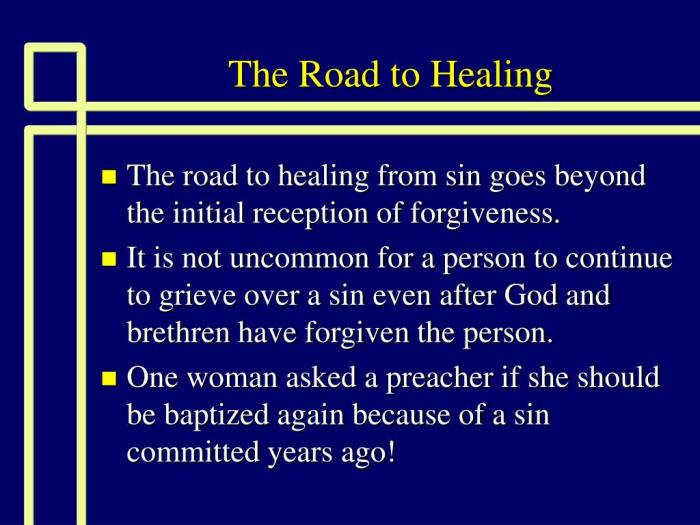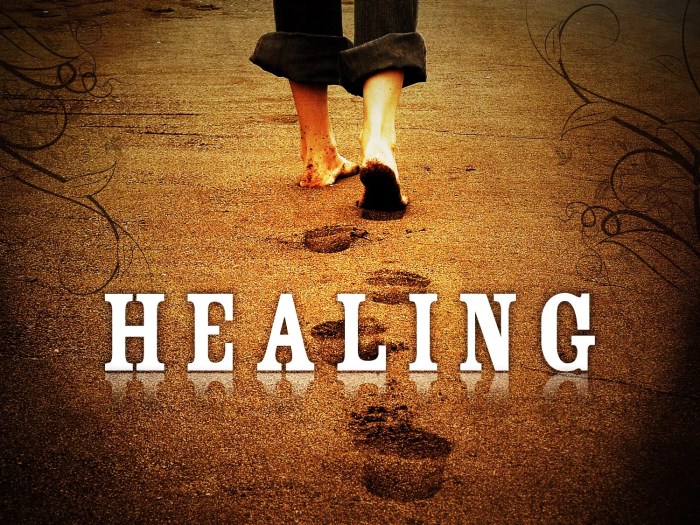Ever felt like you’re stuck in a loop, battling the same demons over and over? Maybe you’re struggling with the aftermath of trauma, addiction, or just feeling lost in the maze of life. This is your wake-up call.
It’s time to hit the reset button and embark on a journey of healing and transformation. This isn’t just about fixing the past, it’s about building a brighter future, a future where you’re free to be the best version of yourself.
This guide is your map, your compass, and your cheerleader all in one. We’ll explore the different stages of healing, share stories of real people who’ve broken free, and equip you with the tools and strategies to build a life filled with strength, resilience, and joy.
Ready to break free? Let’s dive in.
The Journey of Healing

The road to healing is a deeply personal and often challenging journey. It’s a process of confronting past hurts, learning to love and accept yourself, and building resilience to navigate life’s inevitable challenges. While the path may be winding and unpredictable, the rewards of inner peace and freedom are well worth the effort.
Stages of Healing
The healing process is not linear and can vary greatly depending on the individual and the nature of the trauma, addiction, or challenge. However, there are common stages that many people experience.
- Awareness:The first step is recognizing that there’s a problem or issue that needs to be addressed. This can be a difficult step, as it requires acknowledging pain and vulnerability. It’s important to be gentle with yourself during this stage and allow yourself to feel your emotions without judgment.
- Acceptance:Once you become aware of the issue, you can begin to accept it. This doesn’t mean you have to like it or agree with it, but it means acknowledging its reality and letting go of the desire to change it.
Acceptance allows you to move forward without being stuck in denial or resistance.
- Processing:This stage involves working through the emotions and experiences associated with the trauma, addiction, or challenge. This can be done through therapy, journaling, support groups, or other forms of self-expression. It’s important to be patient with yourself and allow yourself to process at your own pace.
- Integration:As you process your experiences, you begin to integrate them into your sense of self. This means finding ways to make peace with the past and move forward with a renewed sense of hope and purpose.
- Transformation:The final stage of healing involves transforming your life. This can involve making changes to your relationships, habits, or beliefs. It’s about creating a new life that reflects your values and supports your well-being.
Overcoming Obstacles
The journey of healing is often filled with obstacles, setbacks, and moments of doubt. But it’s important to remember that you’re not alone and that these challenges are part of the process.
“The greatest glory in living lies not in never falling, but in rising every time we fall.”
Nelson Mandela
Here are some stories of individuals who overcame significant obstacles and found inner strength:
- Oprah Winfrey:A survivor of childhood sexual abuse, Oprah has used her platform to empower others and promote healing. She has spoken openly about her experiences and shared her journey of self-discovery and forgiveness.
- J.K. Rowling:After experiencing a difficult divorce and struggling financially, J.K. Rowling persevered and wrote the Harry Potter series, which has become a global phenomenon. Her story is an inspiration to anyone who has faced adversity and dreams of achieving their goals.
Self-Compassion and Forgiveness
Self-compassion and forgiveness are essential components of the healing process. It’s important to treat yourself with the same kindness and understanding that you would offer to a loved one.
- Self-Compassion:This involves being kind and understanding towards yourself, especially when you’re struggling. It’s about acknowledging your pain and offering yourself support rather than criticizing or judging yourself.
- Forgiveness:This can be a difficult process, but it’s crucial for your emotional well-being. Forgiveness doesn’t mean condoning the actions of others; it means releasing the anger, resentment, and bitterness that can hold you back. It’s about freeing yourself from the past and moving forward with your life.
Breaking Free from Limiting Beliefs
Limiting beliefs are negative thoughts and assumptions that can hold you back from achieving your full potential. They can be based on past experiences, societal norms, or even your own self-doubt.
- Identify Your Limiting Beliefs:Pay attention to your thoughts and identify any negative patterns that keep repeating. Ask yourself: “What are the beliefs that are preventing me from living the life I want?”
- Challenge Your Beliefs:Once you’ve identified your limiting beliefs, start questioning them. Ask yourself: “Is this belief really true? What evidence do I have to support it? What would happen if I didn’t believe this?”
- Replace Negative Beliefs with Positive Ones:Replace your limiting beliefs with positive affirmations and empowering statements. For example, instead of saying “I’m not good enough,” try saying “I am worthy of love and happiness.”
Strategies for Breaking Free
Here are some practical tips and strategies for breaking free from limiting beliefs and negative patterns:
- Mindfulness:Pay attention to your thoughts and feelings without judgment. This can help you become aware of negative patterns and break free from them.
- Journaling:Write down your thoughts and feelings to gain a better understanding of yourself and your patterns.
- Therapy:Working with a therapist can provide you with support and guidance as you navigate the healing process.
- Support Groups:Connecting with others who have similar experiences can provide you with a sense of community and understanding.
- Self-Care:Prioritize activities that promote your well-being, such as exercise, healthy eating, and spending time in nature.
Building a Foundation for Change

Breaking free from the chains of trauma and pain requires a strong foundation for change. It’s not about overnight transformations, but rather a gradual, intentional journey of growth and resilience. This chapter delves into the essential elements that contribute to personal growth and equip you with the tools to navigate the road to healing.
Identifying Key Factors for Growth and Resilience
Personal growth and resilience are intertwined. Understanding the factors that contribute to them is crucial for building a solid foundation for change.
Breaking free from the chains of your past is a wild ride, but it’s totally worth it. You gotta find your voice, own your truth, and embrace your power. If you’re ready to ditch the drama and chase your dreams, check out Sing Your Name Out Loud 15 Rules for Living Your Dream.
It’s like a cheat sheet for unlocking your inner badass and turning those “what ifs” into “hell yeahs.” And remember, you’re not alone on this journey. There’s a whole squad of people cheering you on, so keep on rocking that healing vibe!
- Self-Awareness:Recognizing your strengths, weaknesses, and triggers is a fundamental step in personal growth. This awareness allows you to understand your patterns, beliefs, and emotional responses, paving the way for positive change.
- Mindfulness:Cultivating mindfulness helps you stay present in the moment, reducing stress and anxiety. It allows you to observe your thoughts and feelings without judgment, fostering self-compassion and acceptance.
- Emotional Regulation:Learning to manage and regulate your emotions is essential for navigating life’s challenges. It involves identifying and understanding your emotional triggers, developing healthy coping mechanisms, and practicing self-soothing techniques.
- Resilience:The ability to bounce back from adversity is a key aspect of personal growth. It involves developing a strong sense of self-efficacy, a belief in your ability to overcome obstacles and navigate difficult situations.
The Role of Therapy, Support Groups, and Healthy Coping Mechanisms
Seeking professional help and connecting with others can significantly contribute to your healing journey.
- Therapy:A therapist provides a safe and confidential space to explore your past experiences, understand your emotional patterns, and develop healthy coping mechanisms. Therapy can help you process trauma, build self-esteem, and develop strategies for managing stress and anxiety.
- Support Groups:Connecting with others who share similar experiences can provide a sense of community, validation, and understanding. Support groups offer a safe space to share your struggles, learn from others’ journeys, and build a network of support.
- Healthy Coping Mechanisms:Developing healthy ways to manage stress and difficult emotions is essential for maintaining well-being. These mechanisms can include exercise, journaling, spending time in nature, engaging in creative activities, or practicing relaxation techniques.
Designing a Personalized Plan for Setting Achievable Goals and Building a Supportive Network
Creating a personalized plan for change is essential for achieving lasting results.
Breaking free from the shackles of the past, finding your own voice, and forging a path to healing – it’s a journey that’s not always easy. But it’s in the mingling of words, like the ones you’ll find on Words That Mingle , that we find the courage to speak our truth and embrace the healing process.
Words have power, and when they’re shared with authenticity, they can help us break free from the chains that bind us and step into a brighter future.
- Set Realistic Goals:Break down large goals into smaller, manageable steps. Celebrate each milestone to maintain motivation and build momentum.
- Identify Your Support System:Reach out to trusted friends, family members, or professionals who can offer encouragement and support. This network can provide a sense of belonging and accountability.
- Practice Self-Compassion:Be kind to yourself throughout the process. Acknowledge your progress, celebrate your victories, and learn from setbacks.
The Benefits of Mindfulness, Meditation, and Other Self-Care Practices
Mindfulness and meditation offer powerful tools for cultivating inner peace and enhancing well-being.
- Mindfulness:By bringing awareness to the present moment, mindfulness can help reduce stress, improve focus, and enhance emotional regulation.
- Meditation:Meditation involves focusing your attention on a single point, such as your breath or a mantra. It can promote relaxation, reduce anxiety, and cultivate a sense of inner peace.
- Other Self-Care Practices:Engaging in activities that nurture your physical, emotional, and mental well-being is essential for overall health. These practices can include exercise, healthy eating, spending time in nature, pursuing hobbies, or engaging in creative activities.
Embracing Freedom and Transformation

Breaking free from the shackles of addiction and finding the path to healing is a monumental achievement. It’s not just about reaching the finish line; it’s about celebrating every step of the journey, recognizing the progress you’ve made, and embracing the transformation that comes with it.
Celebrating Milestones and Recognizing Progress
Celebrating milestones is crucial in maintaining motivation and acknowledging your hard work. Each step forward, no matter how small, deserves recognition. Whether it’s a day without using, a successful therapy session, or simply feeling a sense of peace, take the time to appreciate your achievements.
It’s these small victories that fuel your journey and remind you of the strength you possess.
Inspiring Stories of Lasting Change
The stories of individuals who have overcome addiction and achieved lasting change are powerful sources of inspiration. They remind us that recovery is possible and that we are not alone in our struggles.
The Story of Maya
Maya struggled with opioid addiction for years, but she found strength in therapy and support groups. Today, she is a successful entrepreneur and advocate for addiction recovery, sharing her story to inspire others.
The Story of David
Breaking Free: The Road to Healing is all about finding your inner strength and saying “peace out” to whatever’s holding you back. It’s about taking control of your own story and writing a new chapter, one that’s filled with positivity and self-love.
Ready to dive in and start your journey? Download And Listen Here and let the healing begin! Breaking Free is a powerful tool for anyone looking to build a stronger, more authentic version of themselves.
David battled alcohol addiction for decades, but he finally found freedom through a 12-step program and a strong support system. He now volunteers at a local rehab center, helping others find their path to recovery.
Maintaining Momentum and Preventing Relapse
Maintaining momentum and preventing relapse requires ongoing commitment and strategies.
Staying Connected
Building a strong support system of family, friends, and recovery groups is essential. Having people to lean on during challenging times can make a world of difference.
Developing Healthy Coping Mechanisms
Identifying triggers and developing healthy coping mechanisms, such as exercise, meditation, or spending time in nature, can help you navigate difficult situations without resorting to old behaviors.
Breaking free from the past and finding your own path to healing can be a tough journey, but it’s all about taking things one step at a time. Sometimes, a little dose of cute and creative fun can be the perfect way to unwind and refocus.
Check out this adorable coloring book filled with summery scenes, cute animals, and delicious treats – a great way to let your inner artist shine while taking a break from the world. And remember, healing isn’t always about big breakthroughs; it’s often about finding the little moments of joy that bring you peace and clarity.
Regular Self-Care
Prioritizing self-care, including getting enough sleep, eating nutritious foods, and engaging in activities that bring you joy, can help maintain your mental and emotional well-being.
Resources and Tools for Continued Growth and Support
The journey of healing is an ongoing process, and there are numerous resources available to support you along the way.
Therapy
Individual and group therapy can provide valuable insights, coping strategies, and support.
Support Groups
Connecting with others who understand your struggles can create a sense of community and shared experience.
Recovery Apps
Mobile apps offer tools for tracking progress, finding support, and accessing resources.
Online Communities
Online forums and communities provide a platform for sharing experiences, seeking advice, and connecting with others in recovery.
Final Review

The road to healing isn’t always easy, but it’s a journey worth taking. Remember, you’re not alone. There’s a whole community of people who’ve walked this path before you, and there’s support available every step of the way.
So, take a deep breath, embrace the journey, and know that the freedom you seek is within reach. You’ve got this!
Popular Questions
What if I don’t know where to start?
It’s totally normal to feel overwhelmed. Start by taking small steps. Maybe try journaling, meditation, or reaching out to a therapist. Even the smallest act of self-care can make a big difference.
Is it okay to feel like I’m not making progress?
Healing is a process, not a race. There will be ups and downs. Don’t get discouraged. Focus on celebrating the small wins and keep moving forward, one step at a time.
How can I find a therapist or support group?
There are many resources available online and in your community. Start by asking your doctor for referrals or searching for groups on websites like Meetup.com.

